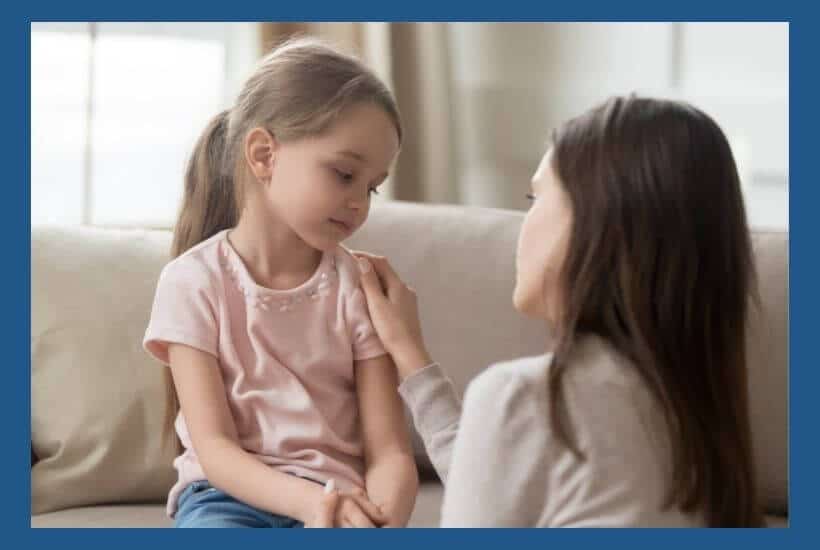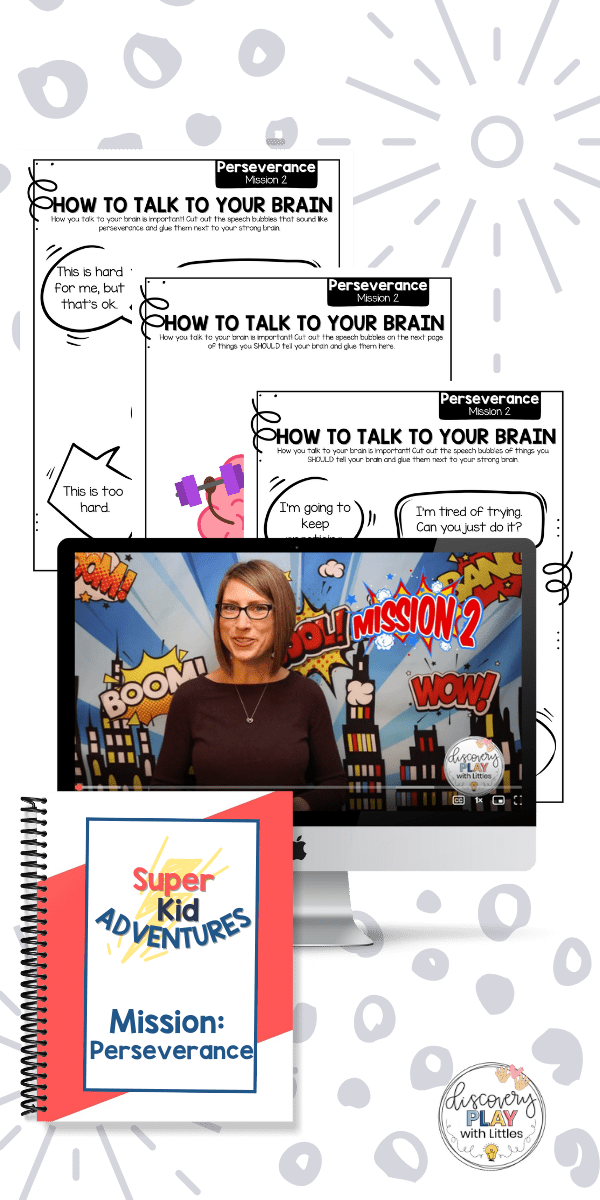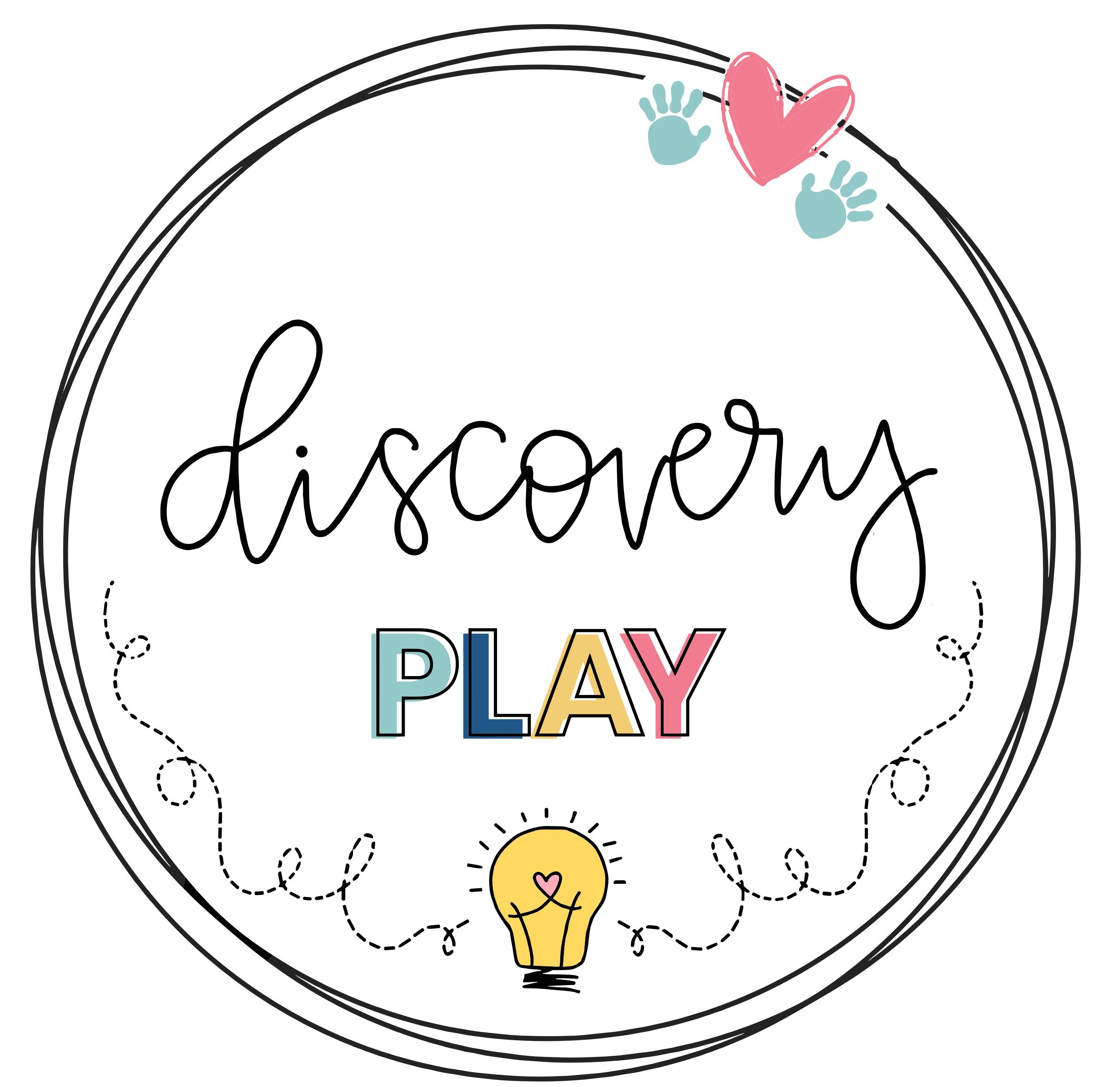“Bud, please wash your hands.”
“I did!” I know he didn’t.
What is it with 4-year-old boys and washing their hands? Honestly. It’s not that difficult.
This has been happening more often. Going potty, washing hands, making his bed, hanging up his jammas.
Pretty much any responsibility I ask him to do he responds with “I did!”…but he didn’t.
Children may lie for many reasons. They may lie because they know they will get in trouble, because they are ashamed of what they have done, or to avoid responsibilities.
For the littles, honesty is a hard concept. They can pretend to be a train, or a car, or even pretend to fly… but a lie is different. This can be confusing for your child, and hard to explain for you.
It’s important to take the time to intentionally teach honesty, what it is, and why it’s important – before lying begins.

Why Is It Important to Teach Honesty?
Honesty is the foundation of any trusting relationship. Sometimes we don’t think about teaching honesty, but it is helpful to teach before there’s a problem.
Your child may pick up on honesty from simply watching you, it’s also important to intentionally teach honesty. By taking some intentional time to discuss honesty, you will teach your child why honesty is important and that it’s an expectation in your home.
If a child makes a habit of lying, there are long-term consequences that will affect them throughout their entire lives. Not being trusted will harm their relationships and careers.

Are you tired of hearing “It’s TOO HARD!” followed by a meltdown?
Using this one simple phrase you’ll get in this powerful lesson, you’ll not only be able to help your kiddo not give up but you’ll:
>Activate their superpower of perseverance so that they can turn around a meltdown and keep trying
>Inspire them to use perseverance…even when it’s hard
>Teach them to recognize the warning signs of giving up, and how to turn it around by taking control of their choices.
Grab your powerful FREE video lesson to teach your kiddo one of the most powerful keys to perseverance.
How Do You Explain Honesty?
I explain honesty as: being truthful is telling what happened in real life. Sometimes kids will try to lie and say “I’m just joking,” thinking that will make it ok. It’s important to talk about that and make sure they know if they don’t tell the truth right away, “just joking” is the same as lying.
Honesty is being truthful in what we say and do. It’s more than not lying- honesty is using integrity. I explain integrity as “What will you do if you don’t think anyone is watching? Will you still make good choices?”
Honesty is going out of your way to return the money you found (even if nobody asked you about it.) It’s not taking a toy from someone else when they aren’t looking. And yes, it’s always being truthful when asked about something.
If your child is having trouble understanding honesty, tell them some made-up scenarios and let them decide if they think the person is using honesty. Things are easier to understand when they are meaningful and relatable to our own lives.
Activities that Teach Honesty
Honesty, like all character traits, must be learned. Here are our favorite activities that help teach honesty-so that it sticks!
1. Talk about Honesty
Using the word honesty in conversation will teach your child that honesty is something that’s important to you, and it will make them aware of what honesty is. Discussing honesty and pointing out when you or your child are honest will go a long way in teaching what honesty is.
Discuss what happens when someone doesn’t use honesty. People have a difficult time trusting them again. It’s not fun to be someone who isn’t trusted. Sometimes knowing the end result of actions will help deter poor choices.
Talk about how your child feels when someone lies to them. Being on the other side of a situation can help them understand the damage that lying can do.
Very Well Family states up until the age of 4, children won’t be able to tell the difference between telling lies and telling the truth. It’s important to discuss honesty from an early age, even though children may not fully understand right away.
2. Model Honesty
As parents, we often try to get away with little lies. Sometimes we want to lie about our child’s age to get discounted admission to the zoo, we lie about their age to get them a cheaper dinner, or we lie about not feeling well so we don’t have to attend an event. Sometimes we tell little white lies to our children.
We do this thinking our kids won’t know the difference, and it saves us from a long difficult conversation, making our child upset, or it’s just easier. Our kids are always watching. At first, they may not know that we are lying to them, but when they figure it out they are learning that it’s ok to lie.
I used to tell Jacob that our video screen in the car didn’t work unless it was a really long car ride (like a vacation)… but is that really the truth? No. I just didn’t want to listen to him ask to watch something anytime we got in the car. The honest thing to say would be that we don’t need to watch something right now.
By always using honesty yourself, you are showing your kids that honesty is something you value even when it’s difficult. Talk to your kiddos about times when you used honesty even when you didn’t want to.
3. Teaching Honesty Through Reading
Reading children’s books is a powerful way to teach. Our brains react as if the story was happening to us, and kids practice reacting to different scenarios. Reading about honesty goes a long way when teaching honesty.
As an Amazon Associate, I earn from qualifying purchases at no additional cost to you.

Julia Cook is one of our all-time favorite authors. She takes honesty and puts it into a relatable story. In Lying Up A Storm, kids learn that when they lie a storm forms on their inside and their sun goes away. This is a great book that helps 4+-year-olds understand honesty.

Ninja Life Hacks- Growth Mindset
I love this book on dishonesty. It talks about the consequences of lying, every time you lie, you are hurting someone. You don’t feel good, you are worried. This is an engaging book set that encourages kids to use honesty.

The Little Spot of Honesty teaches kids that honesty is more than just telling the truth. This book also teaches about integrity and respect.

Berenstain Bears and the TRUTH
Join the cubs as they learn an important lesson on the truth.

In this book, a little girl named Ayzlin makes a mistake and has the chance to use honesty or not. What will she do? This is a great book to start a discussion with your own kids about what they would do when they make a mistake.

Howard B Wigglebottom and the Monkey on His Back
This is a great book because Howard B Wigglebottom finds himself in situations that are relatable to your child, and he has to choose to lie or be honest. This is a great book that can start some important discussions between you and your child when thinking about what they will do if they ever find themselves in the same situations!

Oh no! Pig the Pug Fibber has started the bad habit of lying to get what he wants. Will he learn his lesson that lying isn’t the best thing to do?

Ruthie and the (not so) Teeny Tiny Lie
Ruthie loves teeny tiny things, and when she finds a teeny tiny camera on the playground, she just can’t help herself. She claims it is hers, but then spends the rest of the night upset because she knows deep down that she wasn’t honest. This book shows the natural consequences of lying, but also that there is grace and a way to rebuild trust when you make the right choice.

The Empty Pot is a story set in China, a long time ago. An honest schoolboy, Ping was given some flower seeds by the Emperor. He tended to them every day but eventually had to return to the Emperor with an empty flower pot. Kids learn the importance of honesty and how it pays off in the end.
4. Teaching Honesty through Role-Play
Role-playing is an effective way to teach young children. It takes your child (and their emotions) out of a situation so they can look at the problem from both sides. First, pick two stuffies or dolls to play with. Make up a situation where one has the opportunity to lie and ask your child what they think the stuffy or doll should do.
Next, role-play with you and your child as the characters, (or your child and a brother/sister or friend.) Give them scenarios where they can lie, and talk about what will happen if they tell the truth. Will they likely get in trouble? What do they think would happen if they lie? Always bring attention to how they will feel if they lie, and how good it feels to tell the truth (even if they will get in trouble.)
Lying never feels good. You feel scared that you will get caught, and you don’t feel proud of your choice.
Even if you get in trouble and have a consequence when you are honest you feel good about yourself, feel proud, and you know you are someone who can be trusted.
5. If Your Child Lies
Children will experiment with lying. Always stay calm and talk about it. Ask them why they felt like they needed to lie? What should have they done instead? How does lying make them feel?
Remember, never call your child a liar. This will lead to your child believing they really a liar, and possibly making the problem worse. Instead, you can say “When you chose not to be honest with me…”
Figure out why your child is lying. Are they pretending, avoiding a consequence, or lying to make them feel better about themselves? Knowing the root of the lie will help you deal with it more effectively.
6. Reward Honesty
If your child does something wrong but is honest about it that can be tricky. You need to deal with their wrong actions, but if you yell at them and get upset, they are going to decide that being honest isn’t worth it.
When your child is honest, always reward that choice. Call attention to how hard you know it was for them to be honest, how much courage it took to tell the truth, and let them know that you appreciate their good choice. Tell them that you know you can trust them because they are choosing to be honest with you, even when it’s hard.
7. Play the Truth/Lie Game
This is a simple game that gives kids an opportunity to practice telling the difference between a truth and lie. Print a happy face and a sad face each on their own piece of paper and tape them to different walls in your room. Have everyone stand in the middle, and tell them a truth or lie (the grass is blue). Kids run to the happy face if the statement you said is true, and the sad face if what you said is a lie.
It’s All An Experiment
It’s frustrating when you find out your child is lying. Childhood is one big experiment. They’re experimenting in their safe space (with you).
This can be a difficult concept to teach, but you will be thankful that you took intentional time to teach honesty when your kiddos are young. You’ll love seeing their relationships flourish as they use honesty…even if they still hate to wash their hands.
Want More?
If you liked this, you’ll love:
Fostering Independence in Young Children
7 Simple Ways to Teach Your Child Kindness
6 Simple Ways to Teach Your Child Responsibility
9 Activities to Teach Social Skills That You Will Actually Enjoy
Your Turn
What are your favorite activities for teaching honesty?
